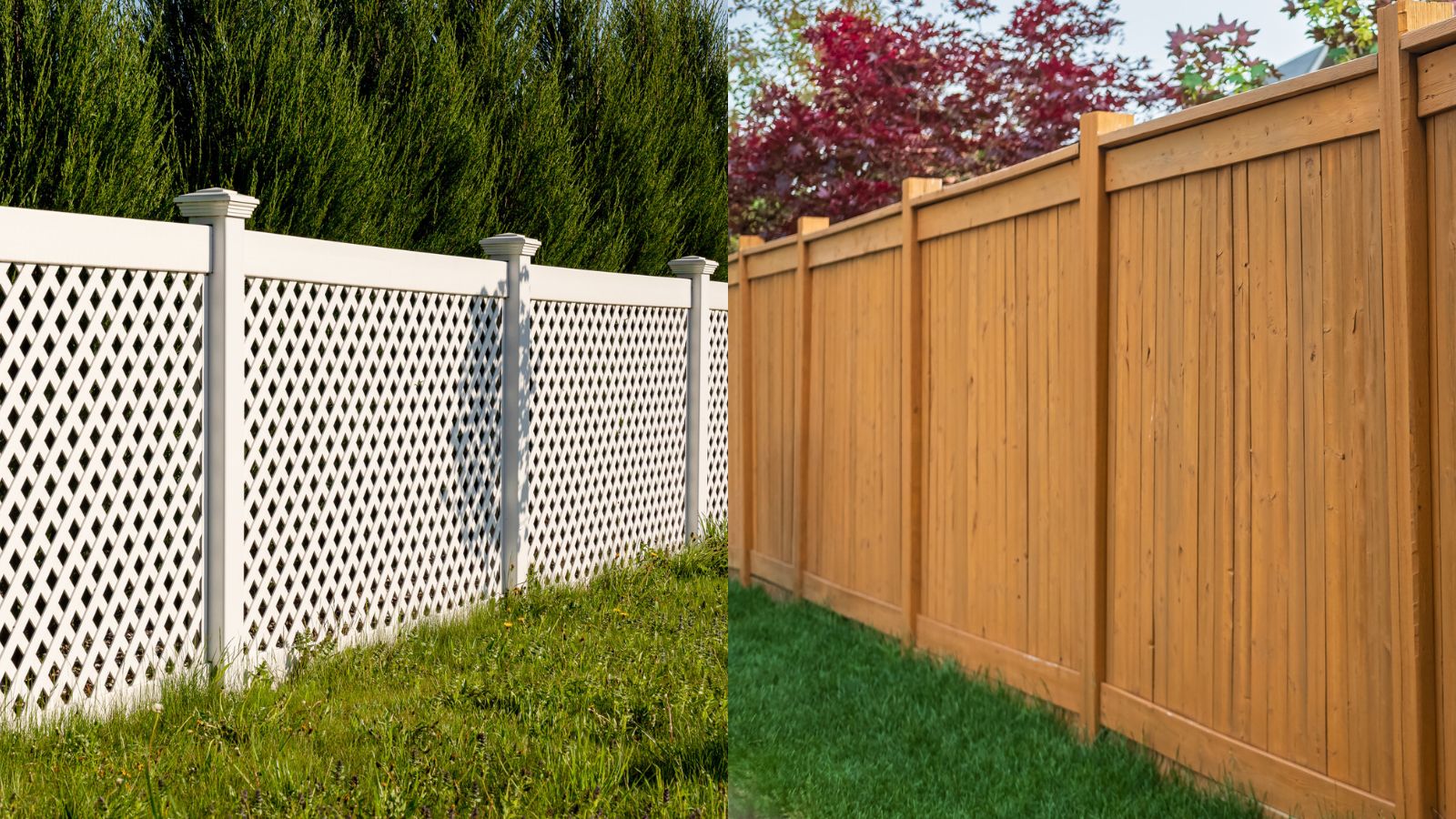
When it comes to fences, there are two main options - wooden fences and vinyl fences.
If you're installing a fence for the first time, it can be tricky to work out which option is best for your yard. Get it wrong and it could be an expensive, time-consuming mistake.
I spoke to a construction expert and a fence specialist about these two types of fence panels. In short, wooden fences are cheaper and more durable, but need more upkeep, while vinyl fences need little maintenance but can be pretty expensive.
What are the benefits of a wooden fence?
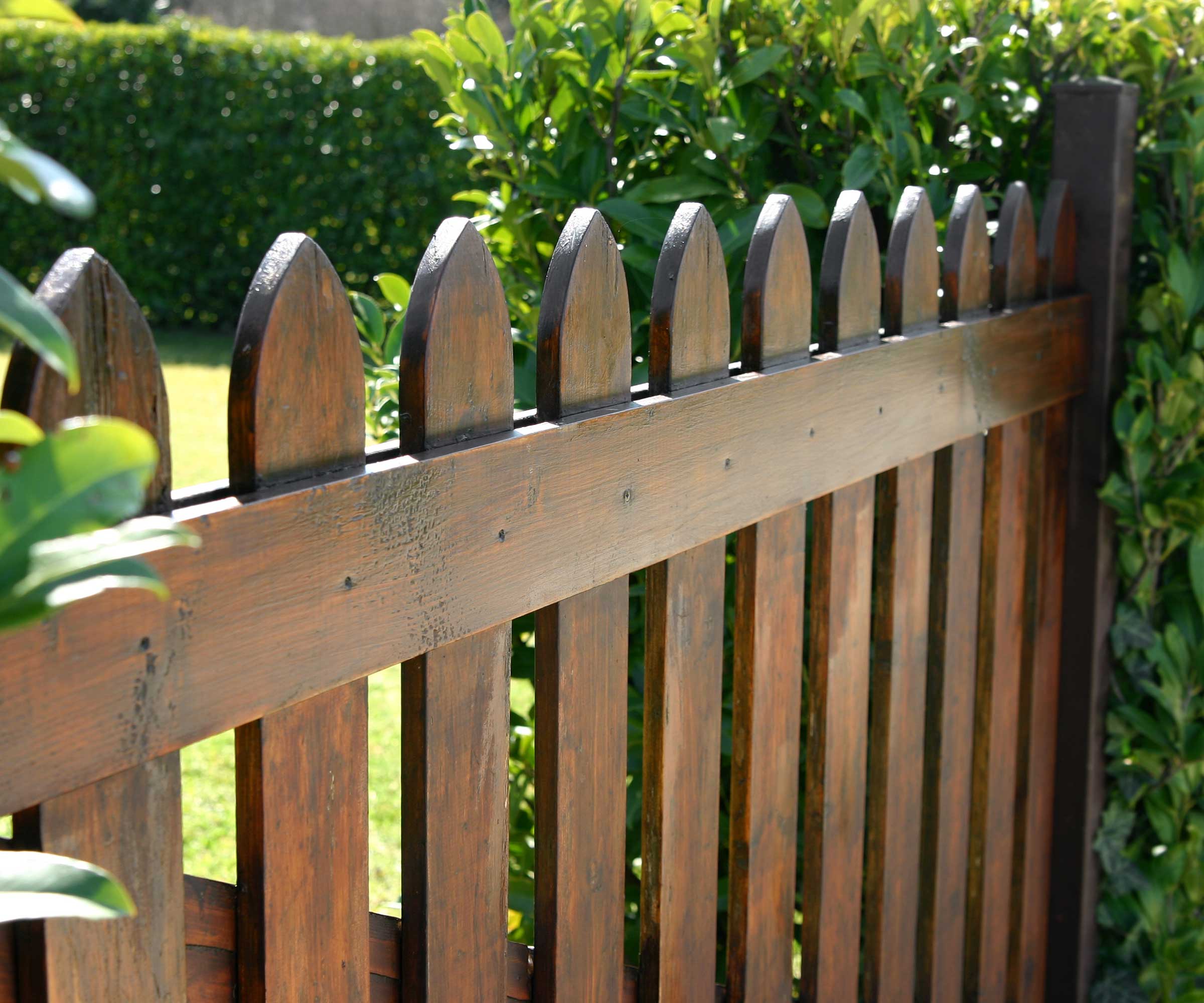
Wood fences are strong, customizable, and easy to repair. Construction expert Joseph Patrick says: 'I recommend wooden fences if you're looking for rigidity and stability. Wood, especially cedar, offers a very sturdy and long-lasting option, particularly here in the Pacific Northwest. If properly painted or treated, a wooden fence can last for decades - 20, 30, or even 40 years.'
He adds: 'You also have more design flexibility with wood, allowing you to create a fence that matches your specific aesthetic preferences.' You can treat wood fences with different stains and paint them many different colors, which isn't always advisable on a vinyl fence as the paint easily peels.
Unlike vinyl fences, it's easy to replace a damaged fence panel. 'Additionally, if your wooden fence gets damaged, it’s easier to repair or replace sections because wood materials, like 2x4s, have consistent dimensions and availability,' says Joseph.
In short, choose a wood fence if you need something durable and cheap and have the time and skill to maintain it.
A simple wood fence panel like this is all you need. It's pressure-treated, so should stand up to rot for a few years before you need to reseal it.
Modern gardens will benefit from a white vinyl fence like this. The lattice top is perfect for training climbing plants along for extra privacy.
If you want extra privacy but don't want the hassle of to growing climbers, this built-in decorative screen will give you privacy and pattern.
What are the drawbacks of a wooden fence?
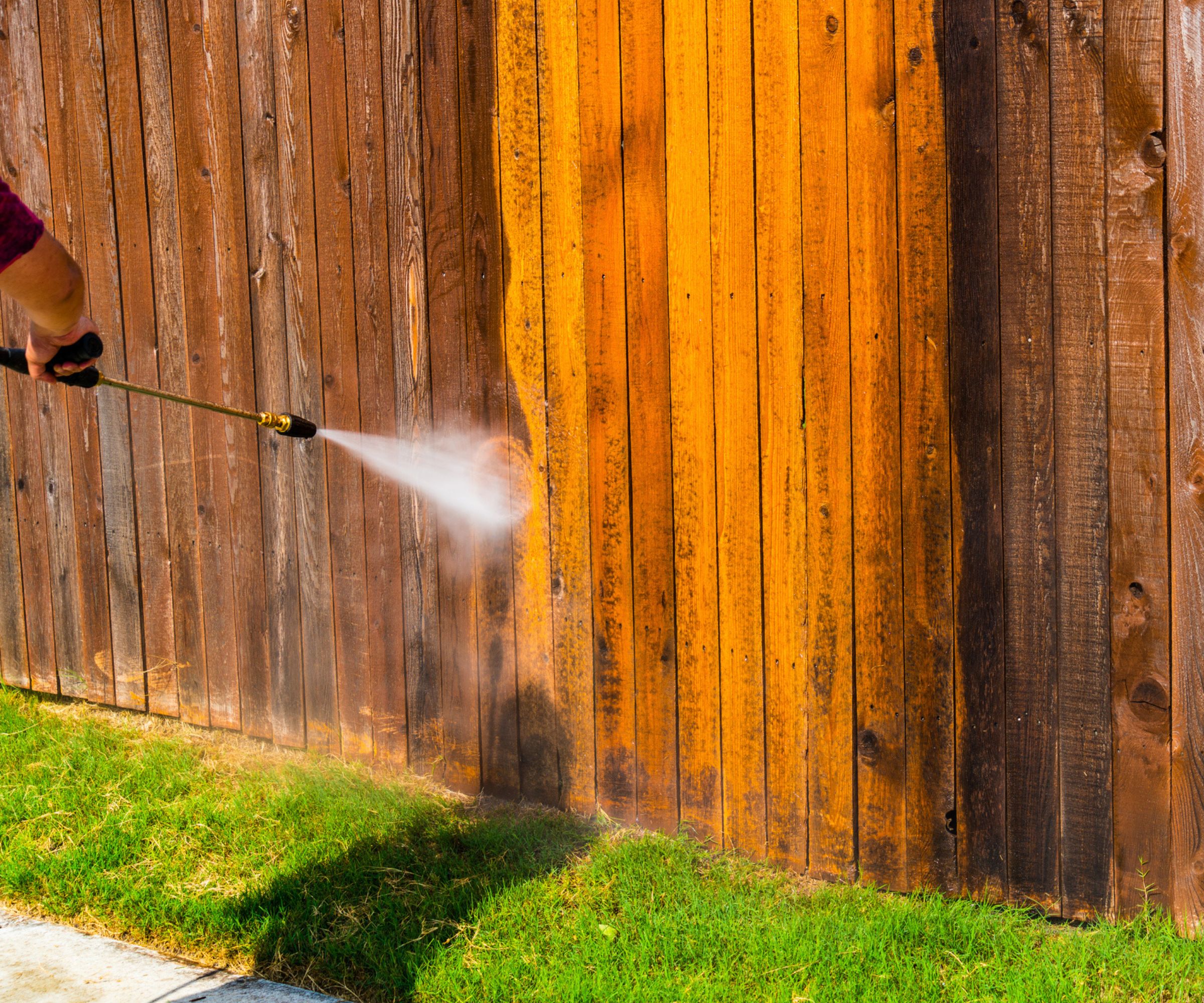
The problem with wood is that it needs more maintenance than vinyl. Fencing expert Luke Beerman says that wood fences are 'prone to damage from the elements, and require regular upkeep'.
Construction expert Joseph Patrick says: 'Even pressure-treated wood will eventually deteriorate. You’ll need to repaint your fence every few years, depending on the paint and exposure to the elements. Repainting involves pressure washing to remove grime, dirt, and algae before applying a new coat of paint.'
On top of rot and cracking, even healthy wood can pick up algae, and removing algae from a fence can be very time-consuming.
What are the benefits of a vinyl fence?
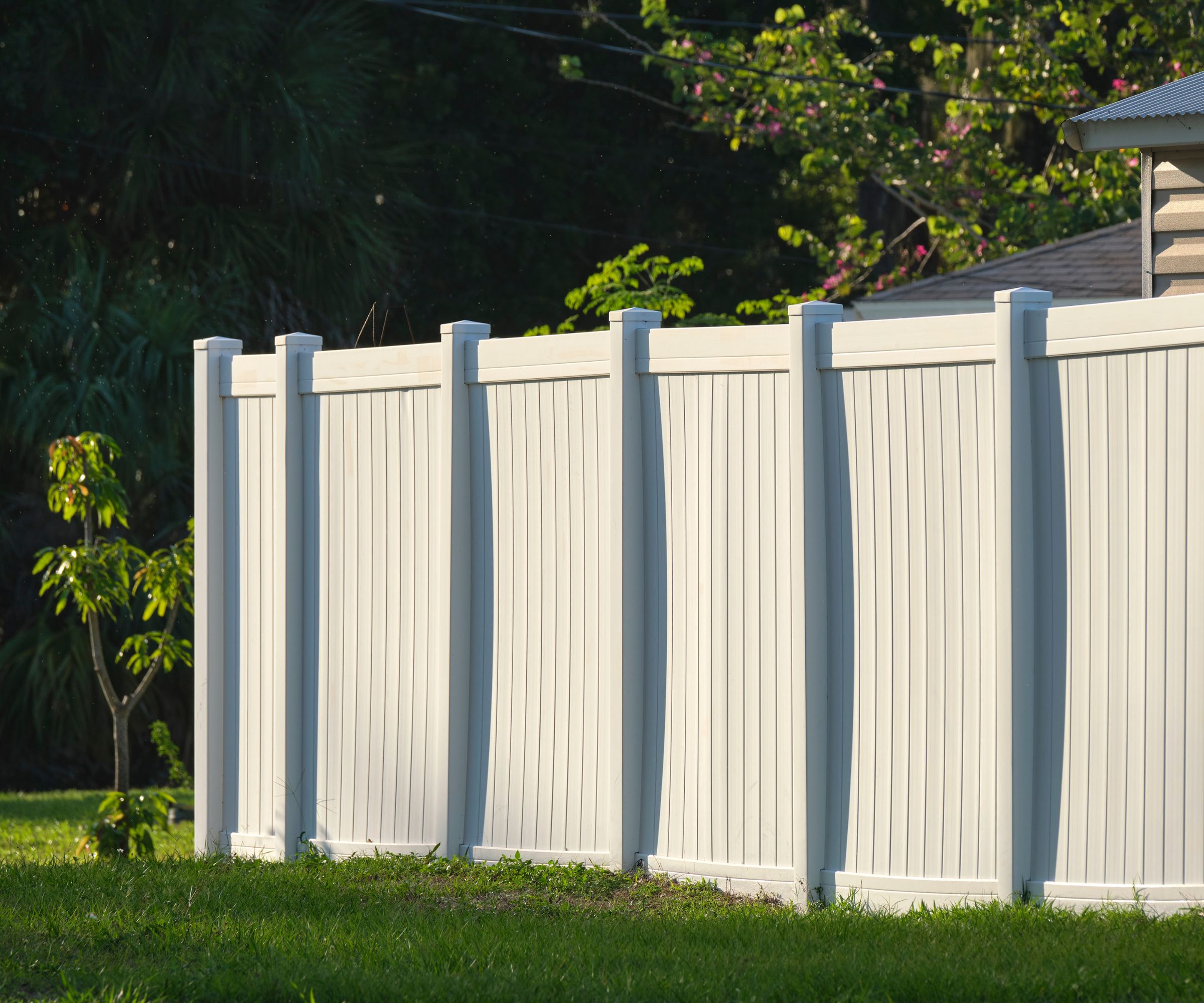
Unlike wood fences, vinyl fences require much less upkeep. By their very nature, vinyl fences can't rot, so they don't need to be treated with sealant.
Construction expert Joseph Patrick says: 'I recommend vinyl fences for their low maintenance. Unlike wood, vinyl only needs occasional pressure washing to remove algae or dirt, making upkeep much simpler.'
Luke Beerman gave me a simple summary. He said: 'Vinyl fences have higher upfront costs but lower long-term maintenance.'
To summarise, a vinyl fence is the best option if you don't mind spending a little money and want something that's easy to maintain. If you want a fence that you never have to think about, vinyl is your answer.
What are the drawbacks of a vinyl fence?
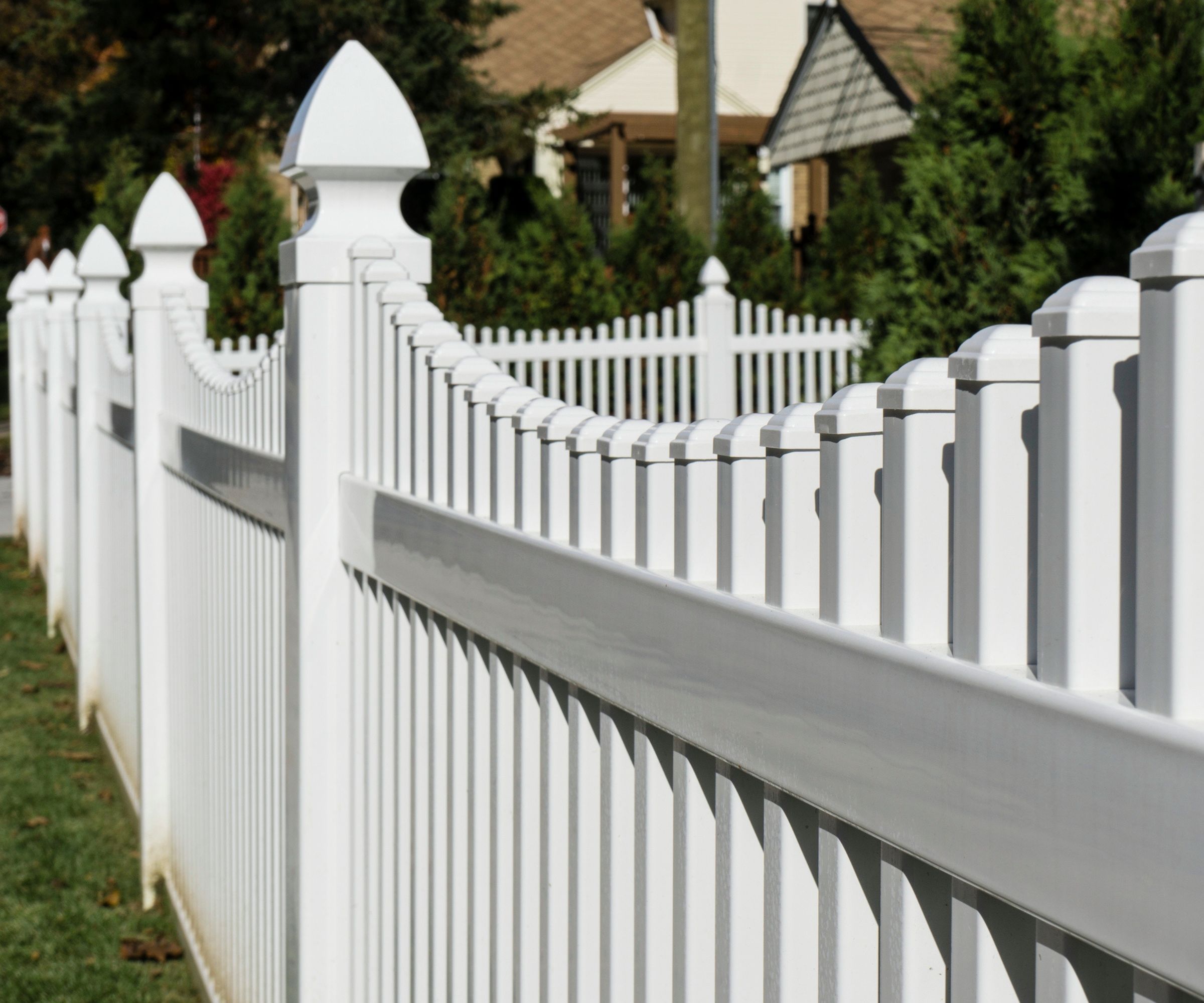
There are three major drawbacks to a vinyl fence. Though vinyl is resistant to water damage, it can be damaged by the sun.
Joseph Patrick says: 'One of the main drawbacks of vinyl is its flexibility, particularly in hot climates. Vinyl can warp or bend over time when exposed to high temperatures, which isn’t an issue with wood.
'On top of more serious warping and cracking, cheaper vinyl fences will discolor in the sun and turn yellow or brown, ruining your garden design.'
Though vinyl fences need less maintenance, maintaining a fence can be difficult. Joseph Patrick adds: 'Additionally, if your vinyl fence gets damaged, replacing sections can be tricky. You’re at the mercy of the manufacturer continuing to produce that specific style, which might not always be the case.'
Finally, Joseph says: 'In terms of design, vinyl is less versatile than wood, limiting your creative options.'
While you can paint a vinyl fence, it's not designed to be painted, so you'll need to regularly reapply a coat, which defeats the point of using vinyl panels. This means that you're usually stuck with the original color of the fence.
Fence FAQs
Which neighbor is responsible for a fence?
If a fence falls on a property, line, both neighbors are responsible for maintaining and repairing it. If it falls on either side of the property line, the responsibility falls to whoever's property the fence is in.
However, fences aren't the only way to introduce privacy into your yard. There are lots of ways of making your yard more private without a fence, such as introducing a hedge or lattice screen of trailing plants.







